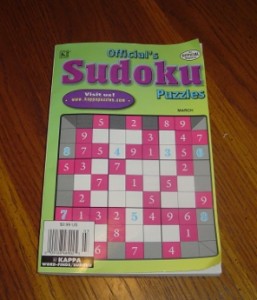I know you must be dying to know what my friend’s friend did about the puzzle book she accidentally stole from the store last week. (If you are new to this blog, go here to see the story: http://tinyurl.com/yzu4jty.
Before I tell you, let me say that I was very impressed with the comments I received about what she should do. The results are 50/50. Some of you believe she should take the book back and pay, others said not to bother.
I’ve been pondering this moral dilemma. Honestly, I do not think it would be that big a deal if my friend’s friend did not take the book back. If she were my friend, I would not think any less of her if she chose to do nothing. Now, I would certainly feel differently if she had stolen it on purpose or if her actions hurt anyone, say, if the employee of the store lost his job or, if it was a small mom and pop store that would miss the dollar associated with that inventory.
Once I got to thinking about it, I realized that, for me, there are degrees of culpability. Do you remember back in the early 90s when the movie, “Indecent Proposal,” came out? Everyone had an opinion on whether it was wrong for Demi Moore to have sex with Robert Redford for a million dollars. People debated the morality of being married and having sex outside the marriage. Some argued that it is a sin. Others said that since her husband agreed to it, that it was ok. So, I guess the first question is whether or not you believe there was a moral lapse on the part of this couple. Apparently, it would have been worse, if she did this behind Woody Harrelson’s back. And, what about the amount of money involved? I remember quite a few people saying they would have sex with Robert Redford for a million bucks. But, what if the amount was a lot less? Would they do it for $10,000? What if wasn’t Redford, but someone much more distasteful to the eyes? Would it take 2 million to do it then?
If there aren’t degrees of culpability, then one could argue that if a couple would do this for a million dollars, they would also do it for a dollar.
So what does this have to do with my friend’s friend? Nothing, really. I’m told she carried the book into the store unnoticed, got in line and paid for it. No questions were asked, so she didn’t offer any explanations. It made her feel right, somehow. So I am told.


